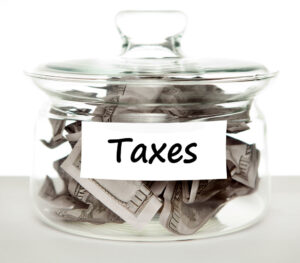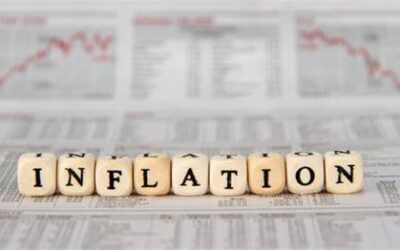
With the year just starting, several new rules and regulations will come into effect in the Netherlands, impacting individuals and businesses alike. Today’s article gives a comprehensive overview of the key changes and how they may affect you.
Zero-Emission Zone in Amsterdam
Starting January 1, 2025, Amsterdam will implement a zero-emission zone, restricting the most polluting vans and lorries from entering the area within the S100 circular road. While a low-emission zone is already enforced within the A10 ring road, the city plans to extend the zero-emission zone to this area by 2028.
To support businesses in adapting to these changes, the city offers various assistance measures, including logistics advisors, a dedicated support line, and financial aid. Amsterdam-based small and medium-sized enterprises (SMEs) and non-profits can apply for a €3,000 subsidy in addition to national subsidy programs and the existing car scrappage scheme.
Energy Tax Reduction on Natural Gas
To ease financial burdens, the energy tax on natural gas will be lowered. The tax rate for the first 170,000 cubic meters of natural gas used will be reduced by €0.028 per cubic meter.
Enhanced Financial Support for Families
In 2025, parents will benefit from increased financial assistance to cover child-related expenses. The government will raise the amounts for childcare allowance, child benefit, and child budget. Families earning between €29,400 and €159,200 will receive higher reimbursements, covering up to 96% of childcare costs. Additionally, the maximum hourly childcare reimbursement rates will increase, and the child budget will be raised by up to €75 per child.
Changes to Income Tax
The Dutch tax system is undergoing a structural change in 2025, particularly in ‘Box 1’ taxation (income from work and home ownership). Instead of the current two-tier structure, income will now be taxed under three brackets:
- Income up to €38,441 will be taxed at 35.82% (approximately 1% lower than in 2024)
- Income between €38,441 and €76,817 will be taxed at 37.48% (about 0.5% higher than in 2024)
- Income exceeding €76,817 will remain taxed at 49.5%
Lower-income earners will benefit from the reduced first bracket, while those with higher incomes will see minimal changes due to the increased second bracket rate.
Updated Salary Thresholds for Highly Skilled Migrants
From January 2025, the Dutch Immigration and Naturalisation Service (IND) will implement new salary thresholds for highly skilled migrants:
- Over 30 years old or key personnel (Intra-Corporate Transferee): €5,688
- Under 30 years old or key personnel (Intra-Corporate Transferee): €4,171
- Reduced salary criterion for highly skilled migrants: €2,989
- European Blue Card holders: €5,688
- European Blue Card holders (graduated within three years): €4,551
These amounts apply to gross monthly salaries excluding the 8% holiday allowance.
Increase in Minimum Wage
As of January 1, 2025, the legal minimum hourly wage for full-time employees aged 21 and over will rise from €13.68 to €14.06. This increase will also apply to AOW and WW benefits.
Stricter Regulations for the Self-Employed
Starting in 2025, the Dutch Tax Authority will strictly enforce the Wet DBA law, ensuring companies do not misclassify workers as self-employed to evade employer obligations. Freelancers must maintain proper documentation to prove their status, such as working with multiple clients and handling their own administrative responsibilities.
New Accessibility Subsidies in Amsterdam
To promote accessibility, Amsterdam is launching a new subsidy program, allowing organizations to apply for up to €25,000 to improve accessibility at venues, events, websites, or apps. Eligible projects include installing wheelchair ramps, upgrading digital accessibility features, and training staff. A total budget of €600,000 has been allocated for 2025 and 2026.
Modifications to Basic Health Insurance
Effective January 1, 2025, adjustments will be made to the basic health insurance package, including expanded coverage for exercise therapy for COPD patients and improved reimbursements for elderly rehabilitation. The deductible will remain at €385, and the maximum personal contribution for medications will stay at €250.
Cap on Rent Increases
New regulations will limit rent increases for private sector housing and houseboat moorings to a maximum of 4.1%. Mid-range rental properties may see increases of up to 7.7%, but rates cannot exceed the price limit determined by the property’s points system.
Tax Changes for Businesses and Entrepreneurs
Entrepreneurs and freelancers will experience significant tax adjustments in 2025:
- The self-employed deduction will decrease to €2,470, continuing a downward trend toward a final reduction to €900 by 2027
- The SME profit exemption will be reduced to 12.7%
- The work-related expense scheme (WKR) will expand, increasing the tax-free allowance percentage for wage bills up to €400,000 from 1.92% to 2%
VAT Reform for Digital Services
From 2025, VAT will be extended to cover virtual services provided online. This includes interactive coaching, live-streamed events, and real-time consultations. VAT will now be applied based on the customer’s location rather than the provider’s, requiring businesses to adjust their billing processes to comply with EU regulations.
Changes to Savings and Investments (Box 3)
Taxpayers in Box 3 (savings and investments) can now prove their actual returns if they are lower than the notional returns calculated by tax authorities, potentially reducing tax burdens. Additionally:
- The tax-free wealth threshold remains at €57,684 (€115,368 for tax partners)
- Bank deposits will continue to be taxed at a lower rate than other assets
- The tax rate on fictitious returns in Box 3 remains at 36%
Adjustments to the 30% Expat Tax Ruling
In 2025, modifications to the 30% ruling for expatriates will continue, with a gradual reduction in tax-free allowances. By 2027, the maximum tax-free percentage will drop from 30% to 27%. The ruling remains capped at the WNT norm, which will increase to €246,000 in 2025. Employees who benefitted from the ruling in December 2022 will see the cap take effect from January 2026.
These regulatory and tax adjustments reflect the Dutch government’s commitment to balancing economic growth, social welfare, and environmental sustainability. Individuals and businesses should take note of these changes and plan accordingly for the year ahead.
References
Iamsterdam. (2025, January 02). What’s changing in the Netherlands in 2025. Retrieved from Iamsterdam: https://www.iamsterdam.com/en/live-work-study/whats-changing-in-the-netherlands-in-2025
Suurmond, L. (2025, January 20). Filing your Dutch taxes: The 2025 guide. Retrieved from Iamexpat: https://www.iamexpat.nl/expat-info/dutch-expat-%EF%BB%BFnews/filing-your-dutch-taxes-2025-guide
Wormsbecher, V. (2024, December 30). Dutch taxes: Changes for 2025. Retrieved from Iamexpat: https://www.iamexpat.nl/expat-info/dutch-expat-news/dutch-taxes-changes-2025
Photo:
https://c2.staticflickr.com/8/7099/7027608495_daeb33feb7_b.jpg



